Save time with Formathics
Whether you're teaching, tutoring, or working on math with your own child, you'll always need resources to work from. But your time is precious. What if you could get instant access to math resources that you can use right now? What if you could create as much practice as you need, in real-world formats that are used in thousands of classrooms? Use Formathics to get the resources you need, so you can spend your time making collaborative, connected, and exploratory learning experiences.
.b2ec8bc163f0.jpeg)
Why Choose Formathics?
- Save time: Stop spending so much time searching for or creating math practice, assessments, and activities.
- Affordable: Only $6.99/month!
- Broad: With hundreds of skills from 6th to 9th grade!
- Flexible: All of our skills can be effortlessly formatted as gallery walks, formative assessments, independent practice, weekly assignments, warm ups, and more!
Something Completely Different
There are a lot of options for math worksheets. Formathics offers something completely different. With hundreds of skills from 6th to 9th grade and many different, flexible formats, with Formathics you have infinite access to the math resources that you want, including:
- Quizzes
- Warm Ups
- Weekly Assignments
- Worksheets
- Gallery Walks
- Flash Cards
- Exit Tickets
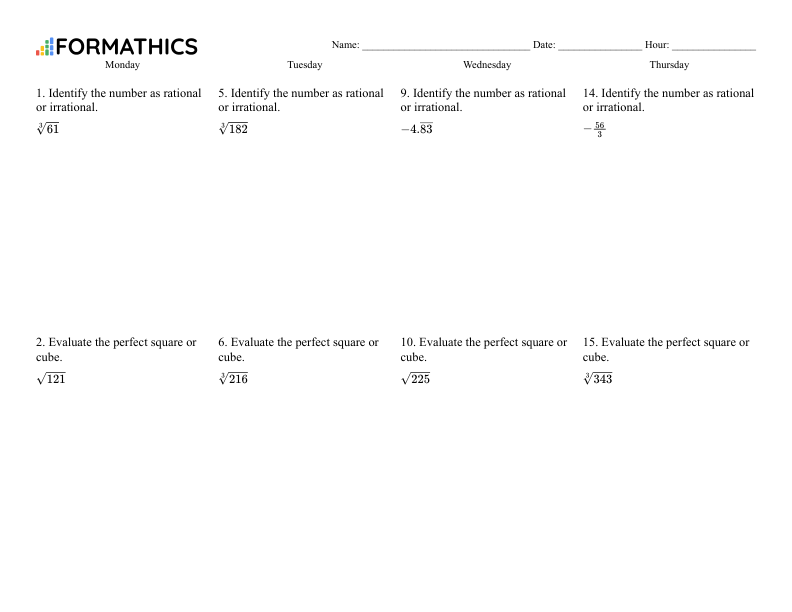
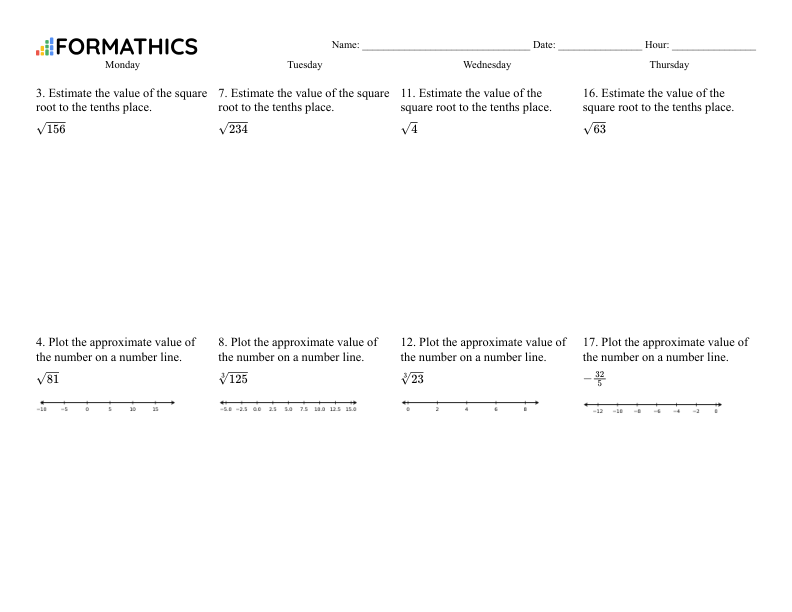
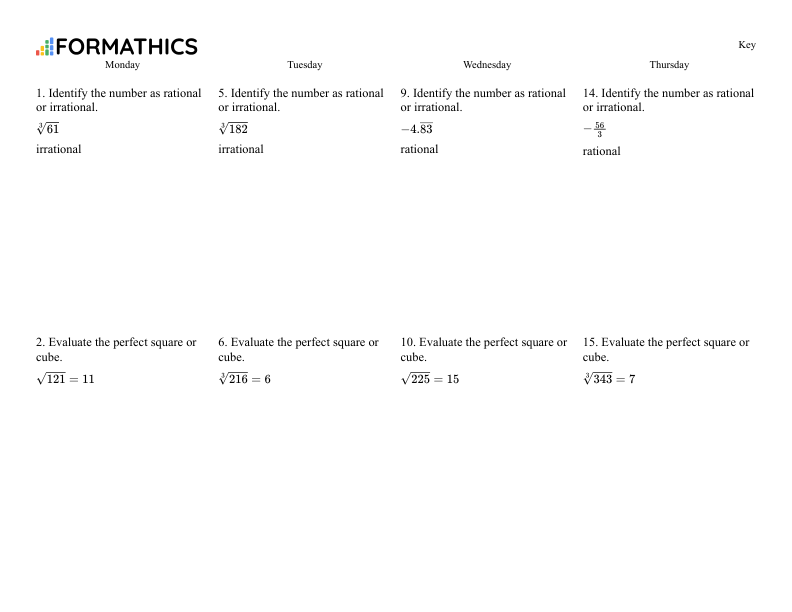
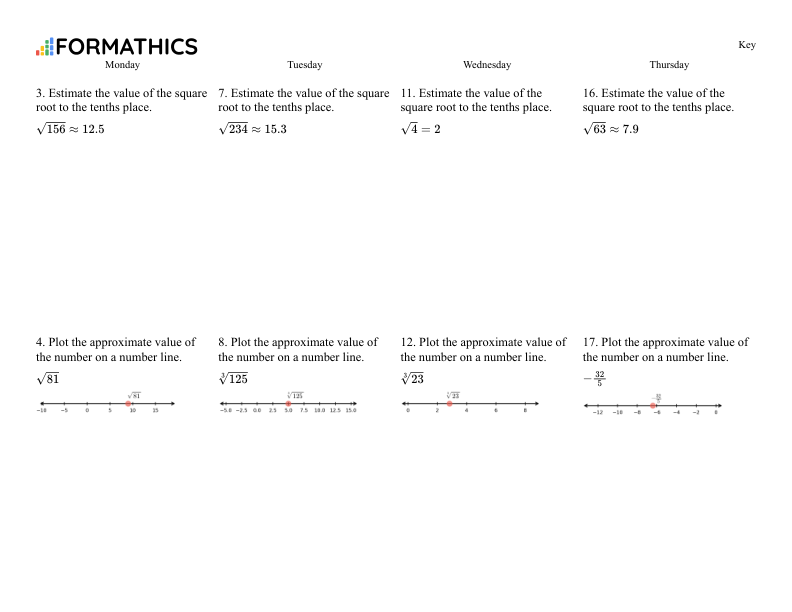
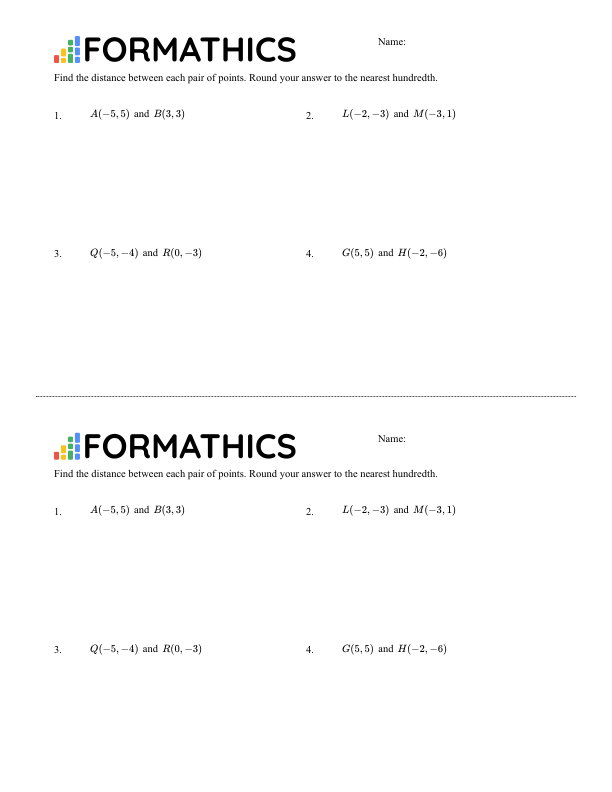
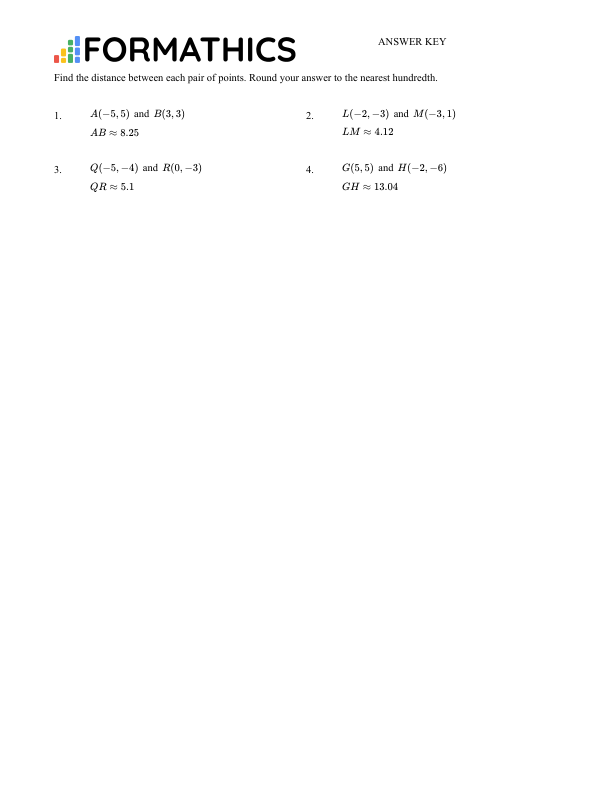
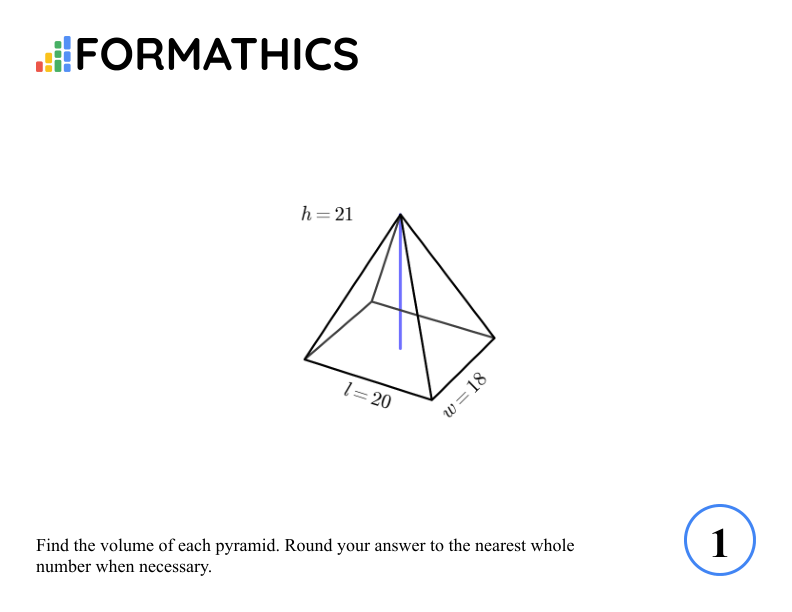
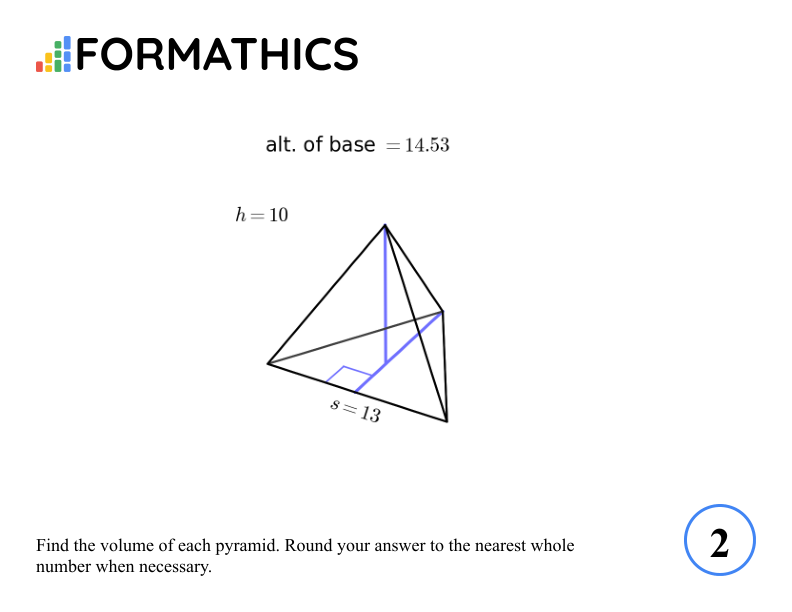
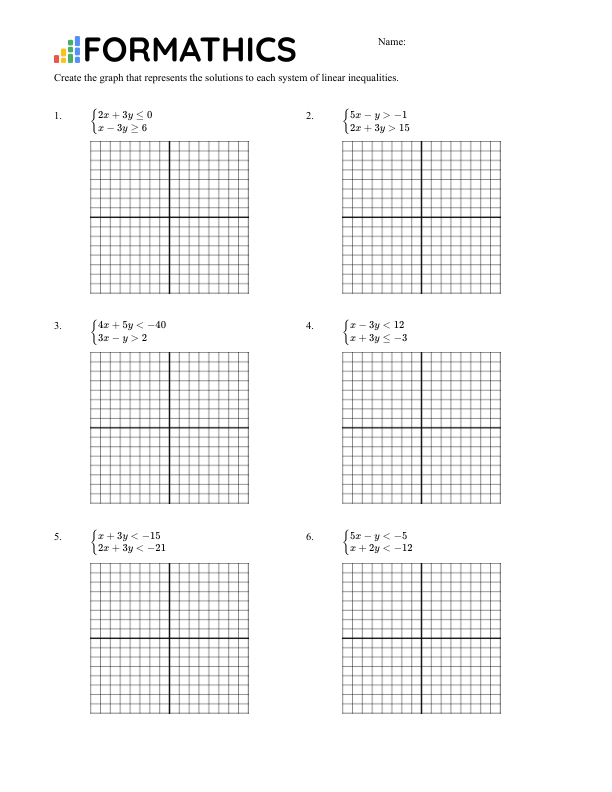
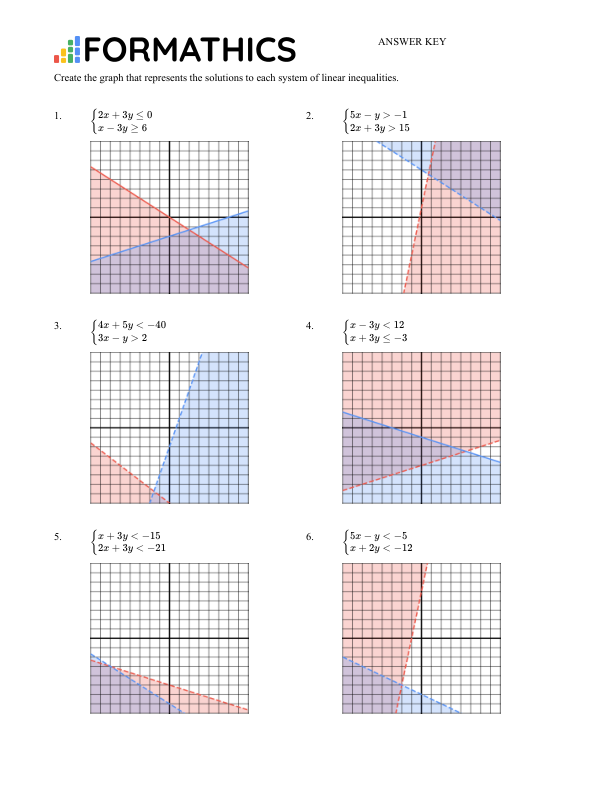
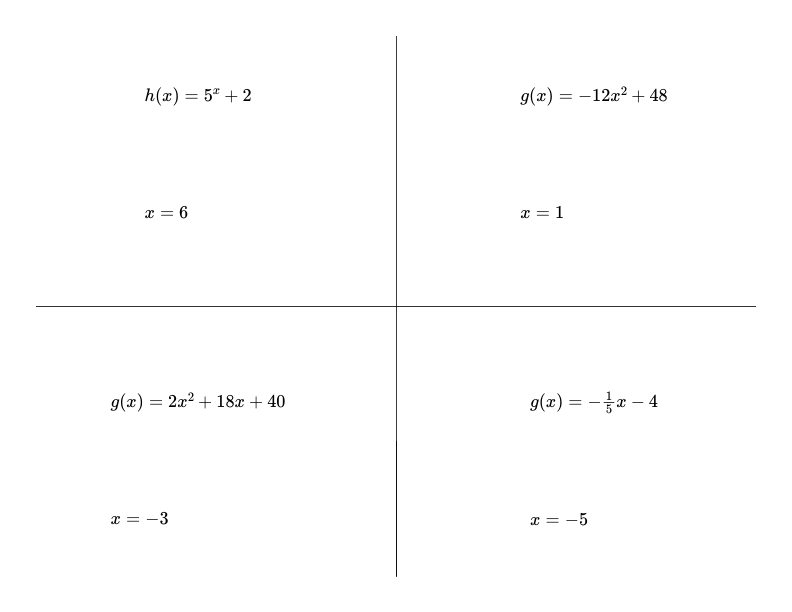
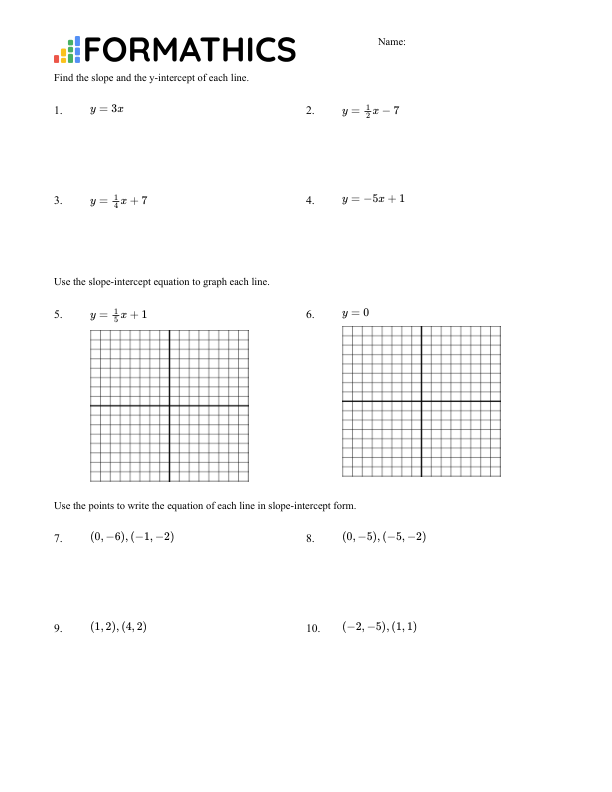
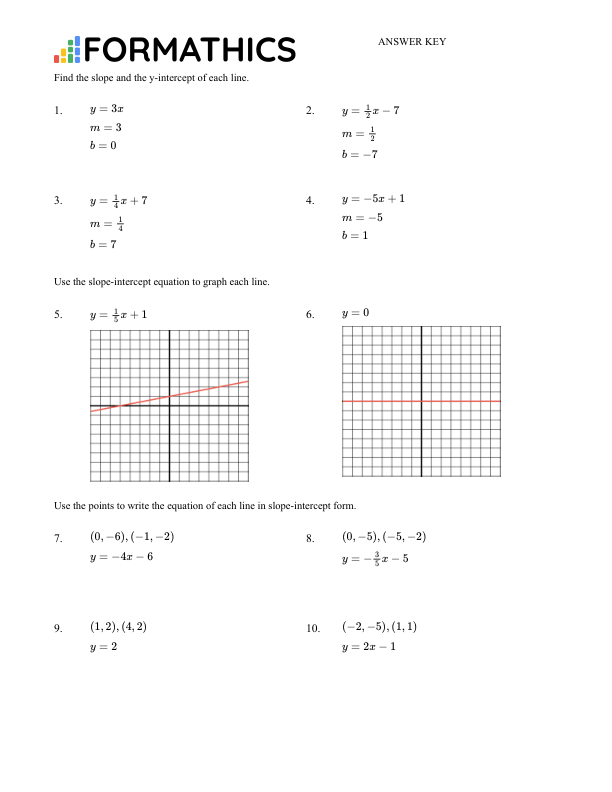
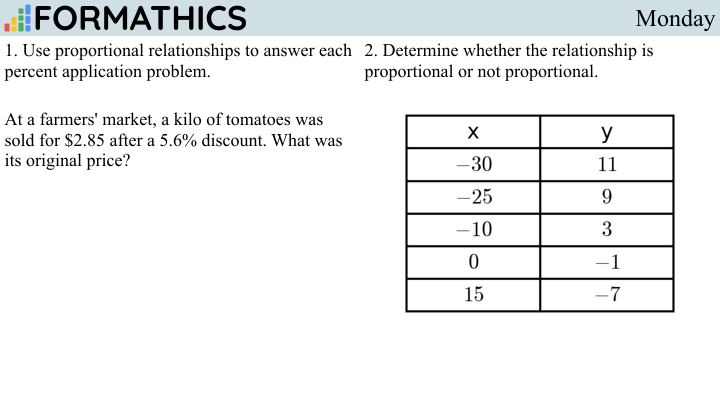
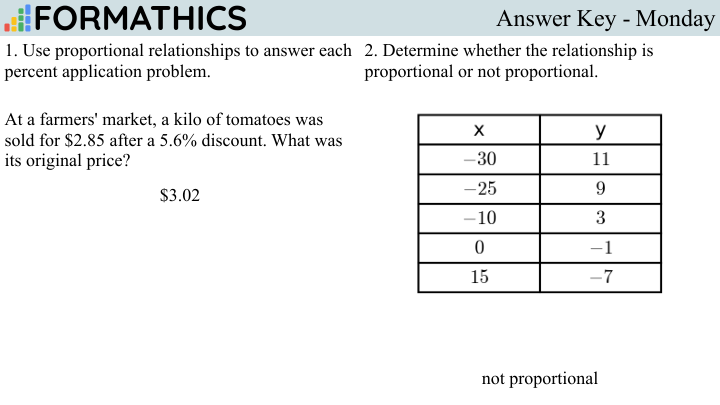
What do Others Have to Say?
Its an Easy 10 out of 10!- Parent and Previous Teacher
A really good compliment when we need to support our students with procedural fluency skills. Our curriculum is built around conceptual understanding, strategic competence, and adaptive reasoning. And as teachers, we often want that extra edge to add.- Math Faciliator
A one stop shop instead of having to utilize a bunch of different resources!- Parent and Previous Teacher
What Topics Can You Access with Formathics?
Formathics has over 400 skills, spanning the big branches of mathematics like geometry, algebra, number sense, functions, and more. Each of those skills can be created in all of our formats, with a unique set of examples any time you need. Get Formathics to have instant access to skills like:
Apply the standard algorithm for the division of decimals (challenging)
Describe the shape of data from box plots
Simplify exponents with the product rule (single variable base)
Convert fractions to decimals using long division
Calculate the volume of spheres
Find the area of kites (using coordinate planes)
Compare the size of numbers by plotting them on a number line
Use a graph to find the endpoint of a line segment
Add and subtract linear expressions
Find the part given the whole and the percent (benchmark percents)
Simplify exponents with the product rule (multiple bases)
Use coordinates to find the midpoint of a line segment
Solve multi-step inequalities (medium)
Compare slopes of linear functions shown in different ways
Represent proportional relationships using equations (given a description)
Find the least common multiple of two whole numbers less than or equal to 12
Rotate points 270 degrees CCW
Solve one-step equations (decimals)
Calculate the mean absolute deviation of a data set
Find the missing leg in a right triangle (hypotenuse in radical form)
Percent word problems
Apply the standard algorithm for all operations on decimals (challenging)
Display numerical data on dot plots
Represent solutions of inequalities on number lines
Calculate probabilities using dice rolls (union/or - medium)
Divide numbers in scientific and decimal notation
Solve mathematical problems involving interior angles (easy)
Represent arithmetic sequences in explicit form (function notation)
Rotate points in multiples of 90 degrees
Use long division (dividend ≥ 1000)
Find the height of a prism by using the volume
Identify rotations shown on graphs
Find the area of a circle given the circle's circumference
Find the volume of pyramids
Find the area of kites
Translate points on graphs
Apply the standard algorithm for the subtraction of decimals (medium)
Summarize numerical data sets from dotplots
Calculate probabilities using a single die (intersection/and - medium)
Understand signs of numbers in ordered pairs as indicating locations in quadrants
Use long division with a remainder (dividend ≤ 1000)
Reflect points over both axes
Simplify exponents with the quotient rule (single integer base)
Solve multi-step equations (medium)
Calculate probabilities for double card draws (without replacement)
Find adjacent angles using a diagram (medium)
Divide rational numbers
Identify transformations (from ordered pairs)
Find the missing leg in a right triangle (hypotenuse rounded)
Solve mathematical problems involving interior angles (challenging)
Use proportional relationships to solve percent problems (mixed)
Find the radius of a circle given the circle's circumference
Find the perimeter of a quadrilateral on a coordinate plane
Find the whole given the part and the percent (benchmark percents)
Recognize linear equations as having one, none, or infinite solutions (easy)
Graph a linear inequality (standard form)
Conduct transformations with figures (on graphs)
Use coordinates to find the endpoint of a line segment
Solve one-step equations (integers)
Find the area of triangles (with measurements for area and perimeter)
Solve mathematical problems involving transversals (challenging)
Simplify exponents with the quotient rule (positive exponents with integer bases)
Simplify exponents with the power rule (single variable base)
Rewrite exponential expressions without exponents
Find the area of special quadrilaterals
Find complementary angles using a diagram (easy)
Solve linear inequalities with the same variable on both sides (easy)
Find the vertex of quadratics by completing the square (easy)
Identify a sequence as arithmetic or geometric
Estimate the value of square roots to the tenths place
Find the surface area of prisms
Calculate probabilities using dice rolls (intersection/and - medium)
Summarize numerical data sets
Divide numbers in scientific notation
Find the area of special quadrilaterals (using coordinate planes)
Calculate probabilities using coin flips (union/or)
Graph quadratic functions using factors (a=1)
Create mappings given scatter plots
Find the unique prime factorization for a whole number
Determine if two lines are parallel, perpendicular, or neither (slope-intercept form)
Reflect ordered pairs (on graph)
Add quadratic expressions
Subtract quadratic expressions
Find the surface area of pyramids
Find the missing hypotenuse (in radical form)
Find the distance between two points
Find growth/decay rates from exponential equations
Rotate points 90 degrees CW
Represent proportional relationships using tables (given an equation)
Find missing angles in angle relationships from descriptions (easy)
Use proportional relationships to solve percent problems (percent increase)
Find the area of trapezoids
Use long division with a remainder (dividend ≤ 100)
Simplify exponents with the power rule (positive exponents with variable bases)
Simplify complex exponential expressions (mixed integer bases)
Represent geometric sequences in recursive form (subscript notation)
Find growth/decay rates for exponential functions given a table
Apply the standard algorithm for the addition of decimals (challenging)
Describe translations shown on graphs
Translate between explicit and recursive forms of geometric sequences (subscript notation)
Use ratios to solve problems
Solve linear inequalities with the same variable on both sides (medium)
Solve linear equations with the same variable on both sides (medium)
Determine the measures of center of a dot plot
Write and solve expressions using real-world scenarios
Recognize whether ratios are in a proportional relationship using tables
Use the greatest common factor and the distributive property to rewrite the sum of two whole numbers, each less than or equal to 100
Write the factored form of quadratics from graphs
Rotate figures on graphs (by multiples of 90 degrees)
Calculate the range of a data set
Find the area of trapezoids (with measurements for area and perimeter)
Find circumference of a circle (given diagram with radius)
Identify the unit rate of a proportional relationship (given a description)
Find the area of triangles
Find adjacent angles using a diagram (challenging)
Determine if two lines are parallel, perpendicular, or neither (standard form)
Conduct a sequence of transformations (on ordered pairs)
Find vertical/horizontal distances between points (on a graph)
Graph functions given in function notation
Apply the standard algorithm for the subtraction of decimals (challenging)
Solve quadratics by taking square roots
Estimate the value of cube roots to the tenths place
Solve systems with elimination
Find the perimeter of a right triangle on a coordinate plane
Solve two-step equations (easy)
Solve two-step equations (medium)
Factor quadratics with integral roots and GCFs
Apply the standard algorithm for the addition of decimals (easy)
Calculate missing radii of spheres
Write the slope-intercept form equation from a table
Find the whole given the part and the percent
Calculate missing heights of cylinders
Conduct all operations on rational numbers
Write the slope-intercept form equation from two points
Create systems of linear inequalities from graphs (slope-intercept form)
Convert equations from point-slope form to slope-intercept form
Convert equations from point-slope form to standard form
Convert and manipulate measurements for distances in the customary system
Calculate probabilities for single card draws (intersection/and)
Calculate probabilities using dice rolls
Calculate average of rate of change over a specified interval for a function represented symbolically
Write the slope-intercept form equation from a graph
Simplify complex exponential expressions (single variable base)
Find supplementary angles using a diagram (challenging)
Find slope from a table
Find the perimeter of triangles on a coordinate plane
Progressive - Division of fractions with denominators ≤ 9
Create mappings given ordered pairs
Convert quadratics (with rational solutions) from standard form into vertex form
Check solutions to systems of linear inequalites (standard form)
Calculate probabilities using a single die
Examine the effects of extreme data points on center
Add linear expressions with rational coefficients (challenging)
Recognize whether ratios are in a proportional relationship using graphs
Sketch graphs of exponential functions
Solve for the real solutions of quadratic equations by factoring
Solve multi-step equations (challenging)
Use proportional relationships to solve real-world problems
Calculate the volume of cylinders, cones, and spheres
Rewrite expressions into equivalent forms (easy)
Find the area of rhombuses
Recognize functions given tables
Find area of a circle (given diagram with radius)
Find complementary angles using a diagram (challenging)
Solve systems by graphing lines
Convert perfect square trinomials (with/without GCFs) from standard form into vertex form
Identify reflections shown on graphs
Find the area of kites (with measurements for area and perimeter)
Factor quadratics with integral roots (a=1)
Solve two-step inequalities (challenging)
Solve quadratics by completing the square (irrational solutions)
Translate figures on graphs
Represent geometric sequences in explicit form (subscript notation)
Find slope from a graph
Find equivalent unit ratios
Write the slope-intercept form equation using a point and the slope
Apply the standard algorithm for the multiplication of decimals (challenging)
Create linear inequalities from graphs (slope-intercept form)
Calculate missing heights of cones
Simplify exponents with the power rule (multiple bases)
Represent proportional relationships using graphs (given a description)
Use proportional relationships to solve percent problems (backward)
Expand linear expressions with rational coefficients (easy)
Find the vertex of quadratics by completing the square
Multiply numbers in scientific and decimal notation
Solve mathematical problems involving transversals (easy)
Solve multi-step equations (easy)
Solve for a quantity of interest in formulas and equations (easy)
Find the part given the whole and the percent
Sketch graphs of exponential functions (quadrant I)
Use transformations on graphs to define congruence
Identify numbers as rational or irrational
Add and subtract rational numbers
Solve quadratics by completing the square (imaginary solutions)
Display numerical data on box plots
Graph a system of linear inequalities (standard form)
Calculate probabilities using a single die (union/or - easy)
Solve mathematical perimeter problems by graphing points in all four quadrants of the coordinate plane
Progressive - Division of fractions with denominators ≤ 9
Calculate missing radii of cylinders
Calculate probabilities using dice rolls (union/or - challenging)
Reflect ordered pairs (no graph)
Factor linear expressions with an integer GCF
Calculate probabilities using dice rolls (intersection/and - easy)
Elevated - Division of fractions with denominators ≤ 12
Use long division (dividend ≤ 1000)
Calculate probabilities using coin flips
Solve two-step inequalities (easy)
Use substitution to determine whether a given number makes an inequality true
List the ordered pairs for each relationship given its mapping
Foundational - Division of fractions with denominators ≤ 6
Simplify exponents with the power rule (single integer base)
Find the equation of lines parallel to given lines
Simplify exponents with the quotient rule (multiple bases)
Represent geometric sequences in recursive form (function notation)
Find the greatest common factor of two whole numbers less than or equal to 100
Write statements of order for rational numbers
Evaluate functions expressed in function notation
Evaluate perfect squares and cubes (positive numbers ≤ to 400)
Solve linear equations with the same variable on both sides (challenging)
Multiply numbers in scientific notation
Write expressions from real-world scenarios
Identify key features of quadratic functions from graphs
Find missing angles in angle relationships from descriptions (medium)
Find the area of trapezoids (using coordinate planes)
Represent proportional relationships using graphs (given an equation)
Apply the standard algorithm for the multiplication of decimals (medium)
Add linear expressions with rational coefficients (medium)
Check solutions to linear inequalites
Find diagonals of rectangular prisms (in radical form)
Find the height of a pyramid by using the volume
Find the percent given the whole and the part (benchmark percents)
Elevated - Division of fractions with denominators ≤ 12
Graph quadratic functions from the standard form equation (a=1)
Multiply rational numbers
Plot ratio values
Find supplementary angles using a diagram (easy)
Find the area of squares
Add and subtract quadratic expressions
Find the missing hypotenuse in a right triangle
Solve one-step equations (fractions)
Dilate points on graphs
Find vertical angles using a diagram (easy)
Subtract linear expressions with rational coefficients (medium)
Calculate missing radii of cones
Use long division with a remainder (dividend ≥ 1000)
Find missing angles in angle relationships from descriptions (challenging)
Find the area of squares (using coordinate planes)
Dilate figures on graphs
Apply the standard algorithm for the addition of decimals (medium)
Compare numbers written in scientific notation
Recognize functions given a map
Calculate the volume of cylinders
Solve quadratics by completing the square (rational solutions)
Identify the unit rate of a proportional relationship (given a graph)
Complete missing values in ratio tables
Solve mathematical problems involving exterior angles (challenging)
Solve linear inequalities with the same variable on both sides (proportional)
Describe dilations shown on graphs
Calculate missing radii of cylinders and cones
Find the area of rectangles
Find the equation of lines perpendicular to given lines
Build arithmetic and geometric sequences given a table (subscript notation)
Create scatter plots given mappings of relationships
Find vertical/horizontal distances between points (with ordered pairs)
Determine how many triangles can be created given the side lengths or angle measures
Add and subtract integers from -20 to 20
Solve linear inequalities with the same variable on both sides (challenging)
Find the area of rectangles (using coordinate planes)
Calculate probabilities using coin flips (intersection/and)
Represent arithmetic sequences in recursive form (subscript notation)
Simplify exponents with the quotient rule (single variable base)
Calculate the volume of cones
Simplify complex exponential expressions (multiple variable bases)
Calculate probabilities for double card draws (replacement)
Find circumference of a circle (given diagram with diameter)
Find the volume of prisms
Solve two-step equations (challenging)
Apply the formula for the area of a circle (mixed r and d)
Graph a linear inequality (slope-intercept form)
Simplify exponents with the product rule (positive exponents with integer bases)
Calculate probabilities using dice rolls (union/or - easy)
Rewrite expressions into equivalent forms (medium)
Solve mathematical problems involving transversals (medium)
Write a percent of a quantity as a ratio per 100
Represent proportional relationships using equations (given a graph)
Elevated - Division of fractions with denominators ≤ 12
Find supplementary angles using a diagram (medium)
Find slope from two points
Describe the shape of data from dot plots
Graph lines using slope-intercept form
Identify the unit rate of a proportional relationship (given a table)
Solve systems with substitution or elimination
Apply the standard algorithm for all operations on decimals (easy)
Calculate probabilities using a single die (union/or - medium)
Find the least common multiple of two whole numbers less than or equal to 12 to add and subtract fractions with unlike denominators
Find the area of special quadrilaterals (with measurements for area and perimeter)
Apply the standard algorithm for the division of decimals (medium)
Represent geometric sequences in explicit form (function notation)
Represent proportional relationships using tables (given a description)
Solve two-step inequalities (medium)
Graph linear functions from various forms and find intercepts
Solve real-world problems involving the division of fractions
Expand linear expressions with rational coefficients (challenging)
Reflect figures on graphs (over both axes)
Find complementary angles using a diagram (medium)
Foundational - Division of fractions with denominators ≤ 6
Solve mathematical area problems by graphing points in all four quadrants of the coordinate plane
Convert time between different units
Apply the standard algorithm for all operations on decimals (medium)
Represent proportional relationships using equations (given a table)
Use proportional relationships to solve percent problems (two-step)
Examine the effects of extreme data points on spread
Expand linear expressions with rational coefficients (medium)
Calculate samples spaces (word problems)
Apply the standard algorithm for the division of decimals (easy)
Calculate measures of center and spread
Solve systems with substitution (mixed forms)
Determine if two lines are parallel, perpendicular, or neither (mixed forms)
Calculate missing heights of cylinders and cones
Use substitution to determine whether a given number makes an equation true
Determine how many triangles can be created given the angle measures
Use long division (dividend ≤ 100)
Apply the standard algorithm for the multiplication of decimals (easy)
Rewrite expressions into equivalent forms (challenging)
Calculate probabilities using a single die (challenging)
Translate between explicit and recursive forms of arithmetic sequences (subscript notation)
Locate numbers approximately on a number line
Solve for a quantity of interest in formulas and equations (medium)
Recognize functions given scatter plots
Recognize linear equations as having one, none, or infinite solutions (challenging)
Find diagonals of rectangular prisms
Solve linear equations with the same variable on both sides (proportional)
Write exponential functions using regression
Simplify exponents with the quotient rule (positive exponents with variable bases)
Express how much larger numbers in scientific notation are
Solve systems with substitution
Write expressions from mathematical descriptions
Write numbers in decimal notation
Convert equations from standard form to slope-intercept form
Find and position pairs of rational numbers on a coordinate plane
Find the volume of right rectangular prisms with fractional edge lengths
Find the area of triangles (using coordinate planes)
Solve multi-step inequalities (challenging)
Write numbers in scientific notation
Determine the measures of center of a data set
Represent arithmetic sequences in recursive form (function notation)
Simplify exponents with the power rule (positive exponents with integer bases)
Write the factored form of quadratics from graphs (a=1)
Find adjacent angles using a diagram (easy)
Divide prisms
Progressive - Division of fractions with denominators ≤ 9
Rotate points 180 degrees
Recognize linear equations as having one, none, or infinite solutions (medium)
Solve linear equations with the same variable on both sides (easy)
Simplify exponents with the product rule (positive exponents with variable bases)
Solve mathematical problems involving interior angles (medium)
Use a graph to find the midpoint of a line segment
Position rational numbers on a horizontal number line
Calculate probabilities for single card draws
Recognize functions given ordered pairs
Convert and manipulate measurements in the metric system
Find the circumference of a circle given the circle's area
Find slope from the slope-intercept form equation
Find area of a circle (given description of radius or diameter)
Solve multi-step inequalities (easy)
Find the area of rhombuses (with measurements for area and perimeter)
Calculate probabilities using dice rolls (intersection/and - challenging)
Identify outliers
Solve mathematical problems involving exterior angles (easy)
Calculate probabilities for single card draws (union/or)
Reflect points over the x-axis
Add linear expressions with rational coefficients (easy)
Find the length of a rectangle's diagonal
Solve real-world problems involving long division
Solve mathematical problems involving exterior angles (medium)
Multiply linear expressions
Calculate probabilities using a single die (intersection/and - easy)
Find vertical angles using a diagram (challenging)
Find the percent given the whole and the part
Simplify exponents with the product rule (single integer base)
Complete tables using exponential equations
Use proportional relationships to solve percent problems (percent decrease)
Identify key features of quadratics in standard form
Calculate probabilities using coin flips (mixed)
Represent arithmetic sequences in explicit form (subscript notation)
Simplify complex exponential expressions (single integer base)
Foundational - Division of fractions with denominators ≤ 6
Apply the standard algorithm for the subtraction of decimals (easy)
Write inequalities from number lines
Find circumference of a circle (given description of radius or diameter)
Subtract linear expressions with rational coefficients (challenging)
Solve quadratics by completing the square (integer solutions)
Reflect points over the y-axis
Calculate the interquartile range of a data set
Represent data with box plots
Find the radius of a circle given the circle's area
Calculate probabilities using a single die (intersection/and - challenging)
Calculate probabilities using a single die (union/or - challenging)
Solve one-step equations (all)
Convert equations from slope-intercept form to standard form
Determine if two figures are congruent (from ordered pairs)
Determine how many triangles can be created given the side lengths
Find the coordinates of missing vertices in rectangles
Find vertical angles using a diagram (medium)
Find the area of rhombuses (using coordinate planes)
Where is Formathics Making an Impact?
Formathics is proudly available in 39 states, with more on the way. Check out our map to see if we are already in your area!
Legend
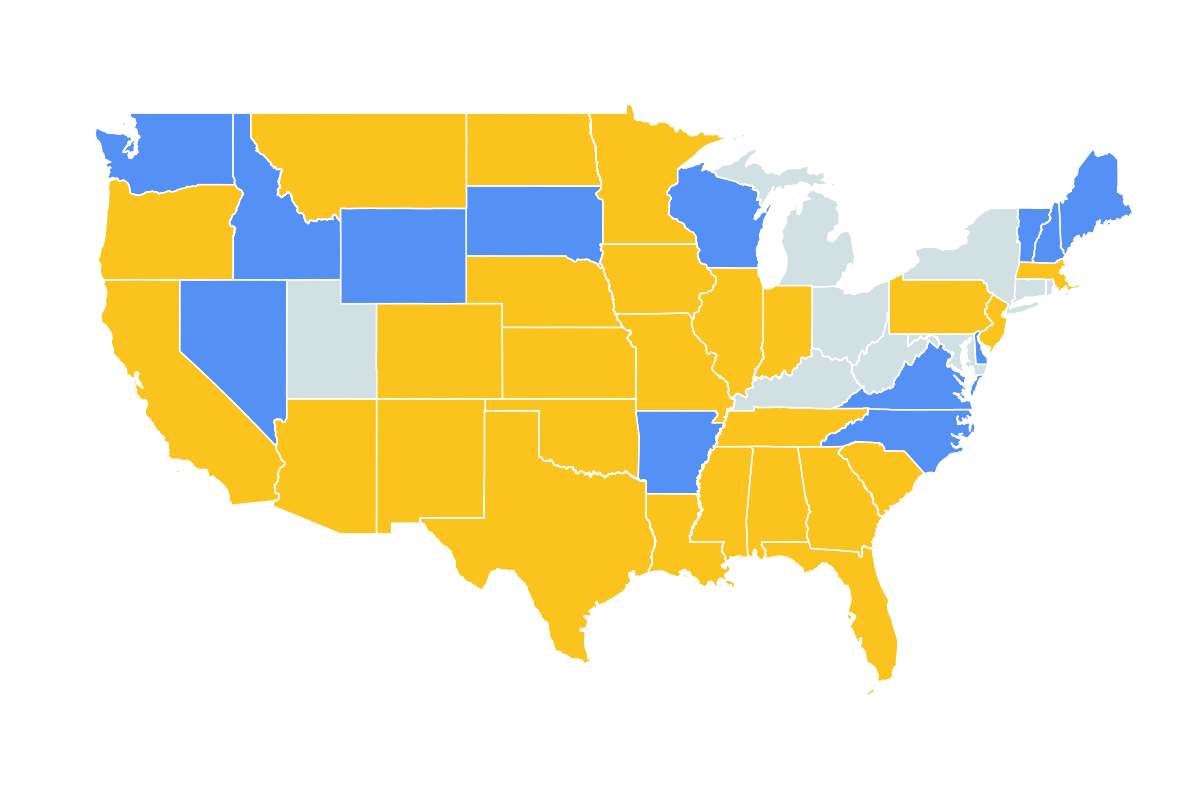
Prefer a List? Hover Over Your State For Details
- Alabama
- Alaska
- Arizona
- Arkansas
- California
- Colorado
- Connecticut
- Delaware
- Florida
- Georgia
- Hawaii
- Idaho
- Illinois
- Indiana
- Iowa
- Kansas
- Kentucky
- Louisiana
- Maine
- Maryland
- Massachusetts
- Michigan
- Minnesota
- Mississippi
- Missouri
- Montana
- Nebraska
- Nevada
- New Hampshire
- New Jersey
- New Mexico
- New York
- North Carolina
- North Dakota
- Ohio
- Oklahoma
- Oregon
- Pennsylvania
- Rhode Island
- South Carolina
- South Dakota
- Tennessee
- Texas
- Utah
- Vermont
- Virginia
- Washington
- West Virginia
- Wisconsin
- Wyoming